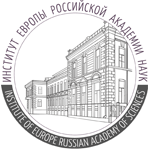institute of europe
the institute of europe of the russian academy of sciences
Illusions of a New Bipolarity
- 08 May 2020
On May 8, 2020, the Russian International Affairs Council (RIAC) published the article «Illusions of a New Bipolarity» by Alexey Gromyko, Director of the Institute of Europe of the Russian Academy of Sciences (IE RAS), RAS Corresponding Member, RIAC member.
There is a certain foreign political dimension to the COVID-19 pandemic that is beginning to rear its head with increasing frequency and can thus explain the current behaviour of states on the international stage. Coronavirus plays two largely contradictory roles – it accelerates some processes while at the same time putting the brakes on, or even halting, others. The former include, among other things, the geopolitical plans of a number of states, while the latter includes finding solutions to global socioeconomic problems and domestic political processes. One area in which events are accelerating is the rivalry between the United States and China, which has prompted many to start talking about a “new bipolarity.” Are we really seeing a revival of bipolarity, but in a modern form? That is, in the true definition of the word – is the world being split into two antagonistic systems?
It has become the norm in the mainstream media, especially those media outlets that push the liberal political agenda, to separate the world into two camps. “China is on the way up and, thanks to Trump’s trade war,” CNN tells us, “the world is heading for an us-versus-them universe […] There will be two camps, pro-America; pro-China […]” Let us be clear, we are not talking about escalating tensions between two states here, but rather between two “camps.”
If the idea of a new bipolarity is untenable, then the possibility of a new Cold War, that is, the appearance of elements of the political, military, financial and economic confrontation between Russia and the West, has also no substance behind. The phenomenon of the Cold War is inseparable from the post-War conditions that led to the emergence of U.S.–Soviet bipolarity. Its key parameters are well known and almost none of them have been recreated. No one makes the claim today that there is a new geopolitical rift between Russia and the United States, and thus the West. The phrase “New Cold War” would still make sense with regard to the trajectory along which China and the United States are currently travelling. However, even then it is used rarely, and mostly by Washington. Again, we need to keep in mind that the Cold War as an element of U.S.–Soviet bipolarity was a path to a certain balance of interests, and not a slippery slope towards an open confrontation.
As for relations between Russia and the European Union, I dare say that, even given the depressing strategies pursued by both sides, the principle of a new bipolarity has not taken root. It is only under extreme duress and with extreme reluctance that the European Union has taken any steps against China. This was laid bare for all to see in the tragicomic story involving the EU report on disinformation about the COVID-19 pandemic. The handling of the coronavirus is leaving more and more people in Europe with no illusions about the United States and the “shining city upon a hill,” or indeed about the far-reaching ambitions harboured by Brussels. The point of view that the current state of relations with Moscow will only make the situation worse has been argued very articulately in a number of analytical works, not to mention by a number of politicians in Europe. The pandemic has led to a certain opportunistic surge in anti-Russia and anti-China rhetoric. But it works far better on the European Union’s less blinkered view of the world than it does on neoliberal apologetics, which in many ways perverts legacy of liberal thought.
https://russiancouncil.ru/en/analytics-and-comments/analytics/illusions-of-a-new-bipolarity/

